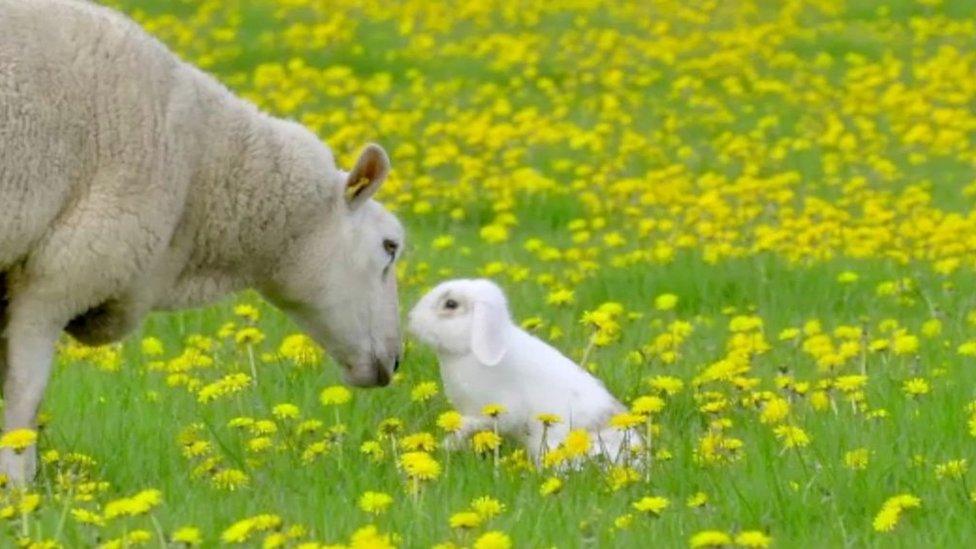Horse rescue: Couple's sanctuary on the Gower
- Published
Life took a turn after Robbie Bartington and David Wallis took in a Welsh mountain pony
When husband and wife David Wallis and Robbie Bartington arrived on the Gower in 2013 they set their sights on a relaxing retirement by the sea.
Three-hundred horses later, things look very different.
Tending to injured horses, orphaned sheep and homeless dogs, their home is now the Woodfield Animal Sanctuary.
But they face a constant economic - and emotional - battle for the animals they have taken in.
While they have given homes to six dogs, 48 hand-reared sheep, two cows and several cats, it is their rescued horses that take most of their time and attention.
But it was never part of the plan.
"We did come here to retire. The first six months were great," said David.
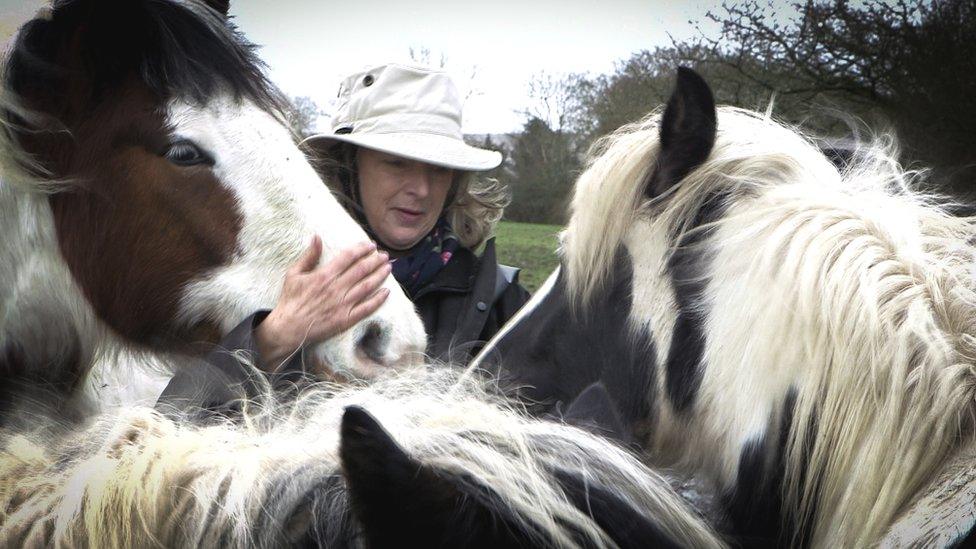
Robbie Bartington says once they'd rescued a handful of horses, word got around. There are currently 55 horses at the sanctuary
"Then it started and we gradually accumulated these creatures, animals that were in need of care."
It all began when the couple, who had arrived with horses of their own, were asked to take in Ollie Beak, a Welsh mountain pony in need of shelter.
Once word got round, more followed, as Robbie recalls.
"We rescued a few horses here and there and once we'd rescued two or three, then people thought it was alright to turn upon with them or phone up and say 'well, if you don't give a home to them we'll just put them to sleep'.
"That's how it started really," she said.
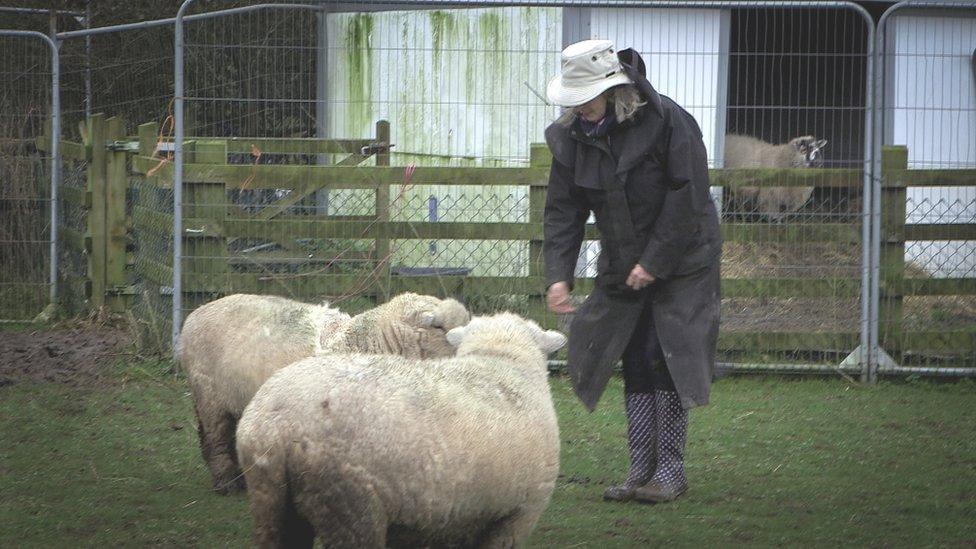
The couple also have sheep, cows, dogs and cats
Ever since, the couple have become one of the first ports of call for locals and emergency services looking to home stray or injured horses.
Some have even been left at their gate, and once 20 arrived in one night.
But it has come at a cost for the couple.
As their intake has grown, so has the need for grazing, shelter and feed.
They now rent 70 acres (28 hectares) from a neighbouring farm, as well as bearing the costs of vets, bedding and shoeing, costing tens of thousands of pounds a year.
"That is the worst side of it," said Robbie.
"We do worry constantly how we'll get through another winter."
Why do they do it?
The personal cost has been massive. The pair admit they've lost friends over the project, as well as not having had a holiday in six years.
But David says it is all worth it when they see their work helps to extend the life of an animal that perhaps would have died.
"Animals are our lives. I think that's probably our motivation," he said.
- Published17 January 2020
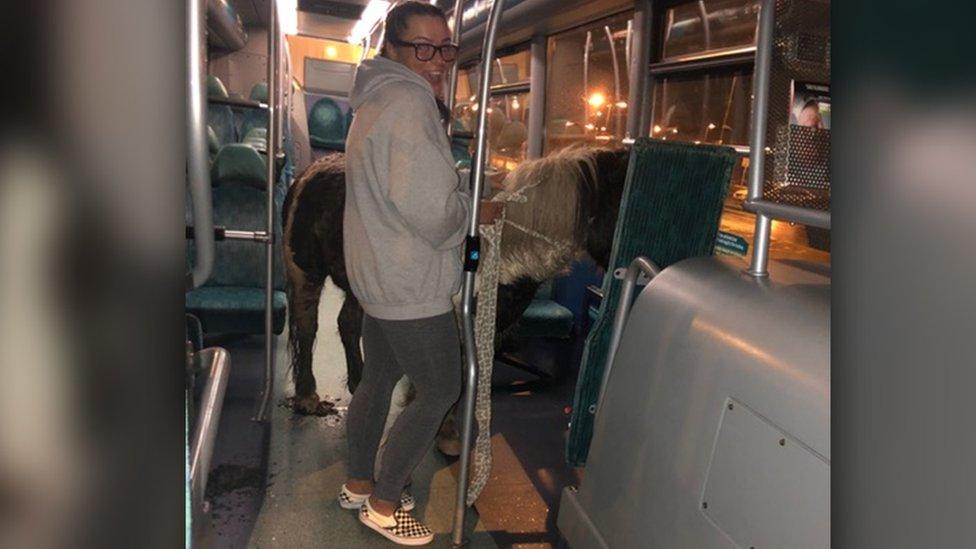
- Published29 December 2019
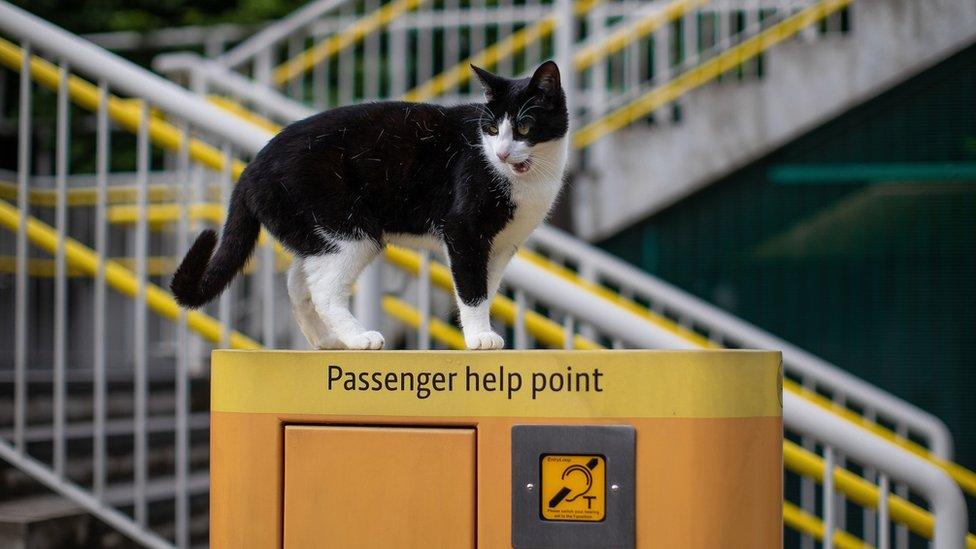
- Published8 January 2019
